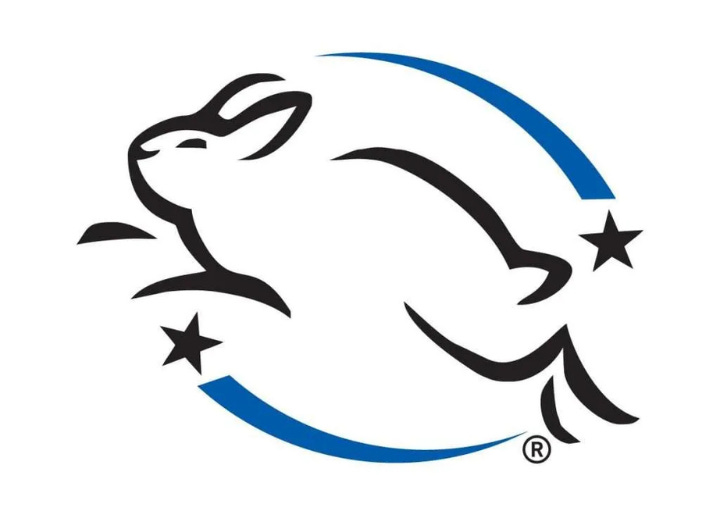‘‘Everyday products often hide cruelty behind shiny packaging. From animal testing in cosmetics to exploiting animals for ingredients, it is time to demand transparency. Choose cruelty-free and vegan alternatives to align your values with compassion and make a difference for animals today.’’
Many people are unaware that cruelty to animals extends far beyond food. Everyday items like cosmetics, clothing, and household goods often involve animal testing or byproducts. These hidden cruelties support industries that exploit animals, making it crucial to uncover the truth and offer kinder alternatives.
Animal Testing in Cosmetics
Cosmetic animal testing remains a grim reality in many parts of the world. Rabbits, mice, and guinea pigs are subjected to painful experiments to test ingredients for makeup, skincare, and hair products. Despite advances in technology, some companies continue to rely on these outdated and inhumane practices.
Alternatives: Look for brands certified by organizations like Leaping Bunny or PETA’s Beauty Without Bunnies. Popular cruelty-free brands include e.l.f. Cosmetics, The Body Shop, and Pacifica. Many of these brands also offer vegan options, ensuring no animal-derived ingredients are used.
Clothing and Accessories: The Price of Fashion
Fashion often comes at the expense of animals. Leather, wool, silk, and down feathers are common in clothing and accessories, but their production causes immense suffering. Leather involves slaughtering cows and other animals, while wool production frequently subjects sheep to inhumane shearing practices. Silk requires boiling silkworms alive, and down feathers are often plucked from live birds.
Alternatives: Sustainable vegan materials are revolutionizing fashion. Faux leather made from mushrooms, pineapples, and cactus offers stylish and ethical options. Brands like Stella McCartney and Matt & Nat focus on cruelty-free fashion. Look for labels that use terms like “vegan leather” or “plant-based materials” and avoid animal-derived materials altogether.
Household Goods: Unexpected Animal Byproducts
Animal-derived ingredients are surprisingly common in household products like cleaning supplies, candles, and even paint. Tallow, a fat derived from slaughtered animals, is often used in soap and candles. Lanolin, extracted from sheep’s wool, appears in cleaning products, while casein from milk can be found in adhesives and paints.
Alternatives: Opt for brands that are clearly labeled as vegan and cruelty-free. For cleaning products, look for companies like Method, Seventh Generation, and Mrs. Meyer’s Clean Day. When buying candles, choose soy or coconut wax options, which are not only animal-free but also more eco-friendly.
The Impact of Hidden Cruelty
The use of animals in these industries perpetuates a cycle of exploitation. Millions of animals endure suffering and death annually to produce items that we often take for granted. Beyond the ethical concerns, these practices also harm the environment, contributing to deforestation, water pollution, and carbon emissions.
By choosing alternatives, we can reduce demand for cruel products and encourage industries to adopt more ethical practices.
How to Spot Cruelty-Free Products
Check for Certifications: Look for labels like the Leaping Bunny or Certified Vegan.
Read the Ingredients: Avoid products with ingredients like gelatin, tallow, lanolin, or carmine (crushed insects used for red dye).
Research Brands: Many companies publicly commit to being cruelty-free and transparent about their sourcing.
Ask Questions: If in doubt, contact companies directly to confirm whether their products are vegan and cruelty-free.
The Power of Consumer Choices
Every purchase sends a message. By choosing cruelty-free and vegan products, you’re voting against animal exploitation and supporting a kinder, more sustainable world. Many people assume these alternatives are more expensive, but that’s not always the case. Affordable cruelty-free options are becoming increasingly available as awareness grows.
The transition to a cruelty-free lifestyle might seem daunting at first, but small steps can lead to meaningful change. Replace items gradually as they run out, starting with categories like cosmetics or cleaning supplies. As you make more informed choices, you’ll discover the abundance of alternatives available.
A Kinder Future
The hidden cruelty in everyday products doesn’t have to continue. By spreading awareness and supporting ethical companies, we can demand better for animals and our planet. Switching to cruelty-free alternatives is not just an act of compassion—it’s a step toward creating a more just world.
Together, our choices can make a difference. Let’s choose kindness in every aspect of our lives, starting with the products we use daily. After all, compassion never goes out of style.
Get my new booklet ‘‘25 Vegan Myths Debunked!’’
This concise guide is invaluable for anyone curious about veganism, offering evidence-based insights and practical guidance to navigate vegan living confidently. All proceeds benefit the promotion of animal rights worldwide!
Visit Our Amazon Store!
Notice: As an Amazon Associate, we earn a commission from qualifying purchases that help promote animal rights worldwide!
General Resources
Books:
Dominion: The Power of Animals in Nature and in Our Imagination by Matthew Scully
Animal Liberation by Peter Singer
Eating Animals by Jonathan Safran Foer
A Billion Hungry Mouths: Feeding the World Without Consuming the Planet by Colin Tudge
Websites and organizations:
Documentaries:
Articles:
"The Case for Animal Rights" by Tom Regan
‘‘Why We Love Dogs, Eat Pigs, and Wear Cows: An Introduction to Carnism’’ by Melanie Joy
‘‘Animal Rights: The Abolitionist Approach’’ by Gary L. Francione
‘‘Fellow Creatures: Our Obligations to the Other Animals’’ by Christine Korsgaard
Seeds of Compassion: Finding Jesus Christ in a Vegan World by Michael Corthell
Receive a single informative article daily at 12:01 AM by email. Explore my homepage with exciting vegan and plant-based news content and delightful and delicious recipes for additional updates. Stay connected to the vegan world and all it has to offer.
Visit The Vegan Project Global our Facebook page for more vegan outreach and education.
The information on this vegan/plant-based blog is for general informational purposes only. It is not intended as legal, medical, or professional advice. Readers should consult with appropriate professionals for specific advice tailored to their situation. The blog owner is not responsible for any reliance on the information herein.





